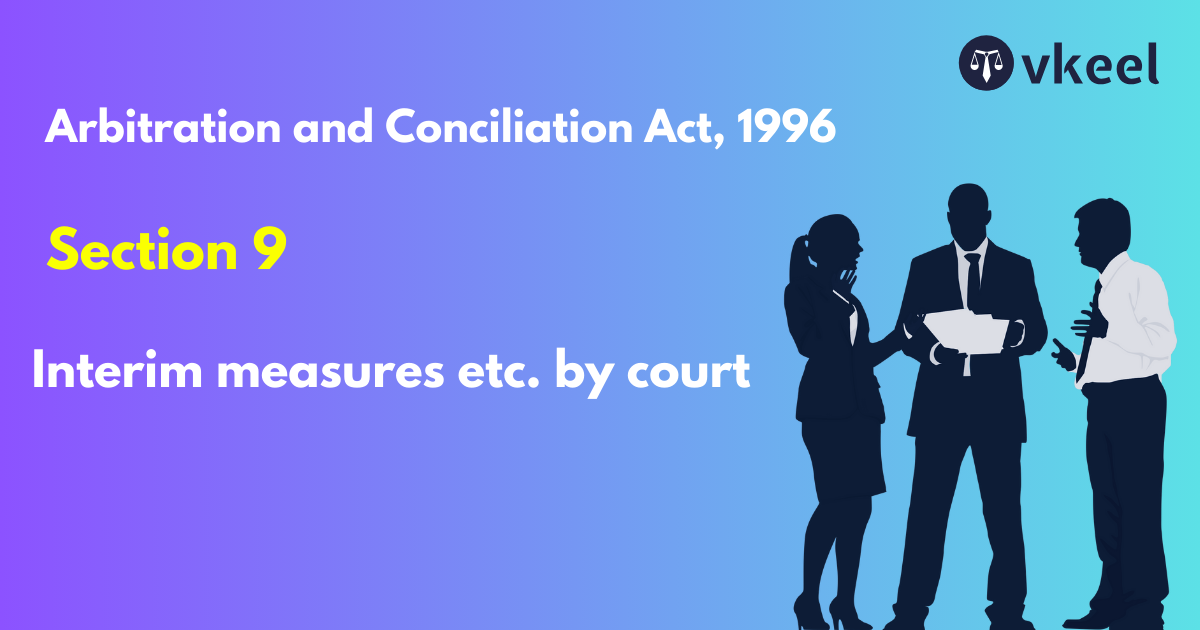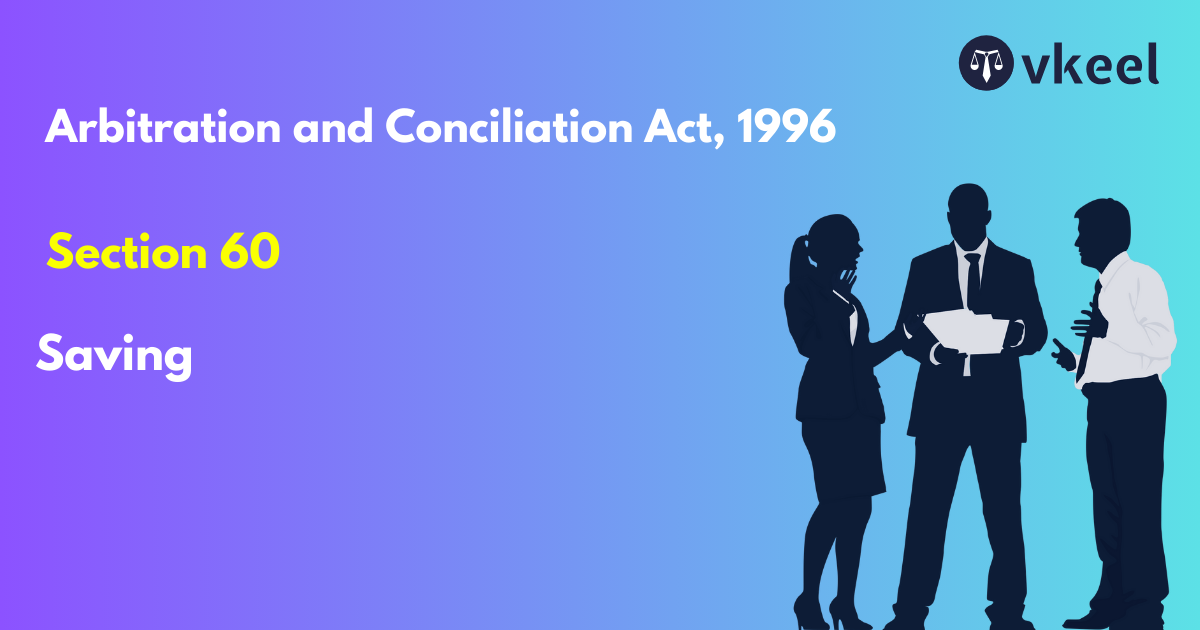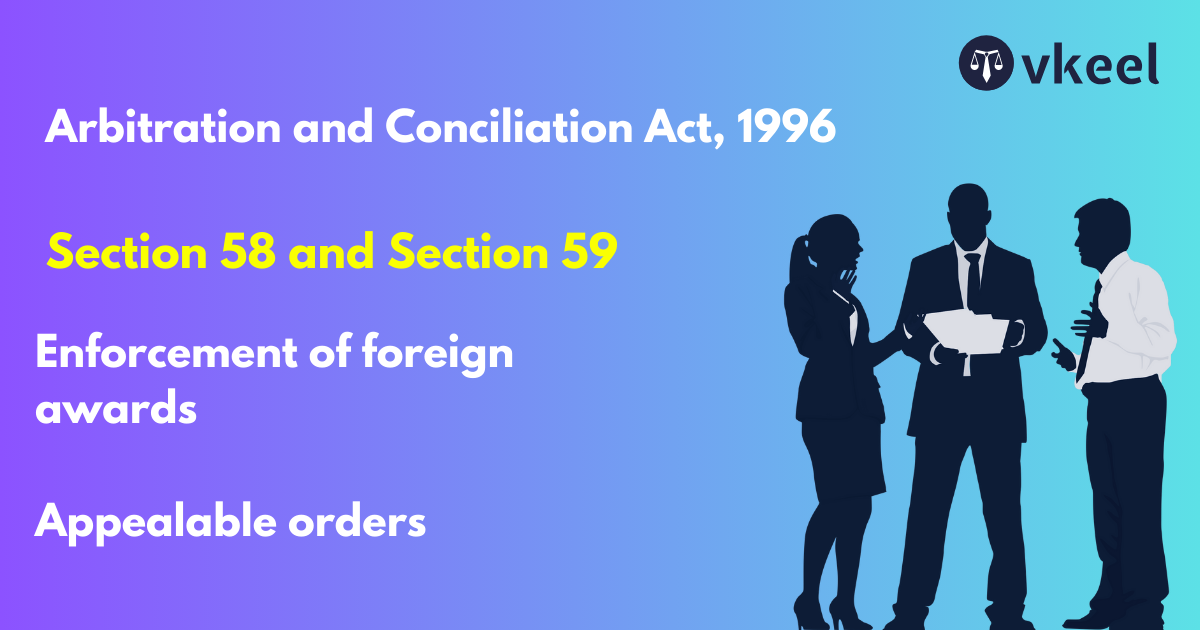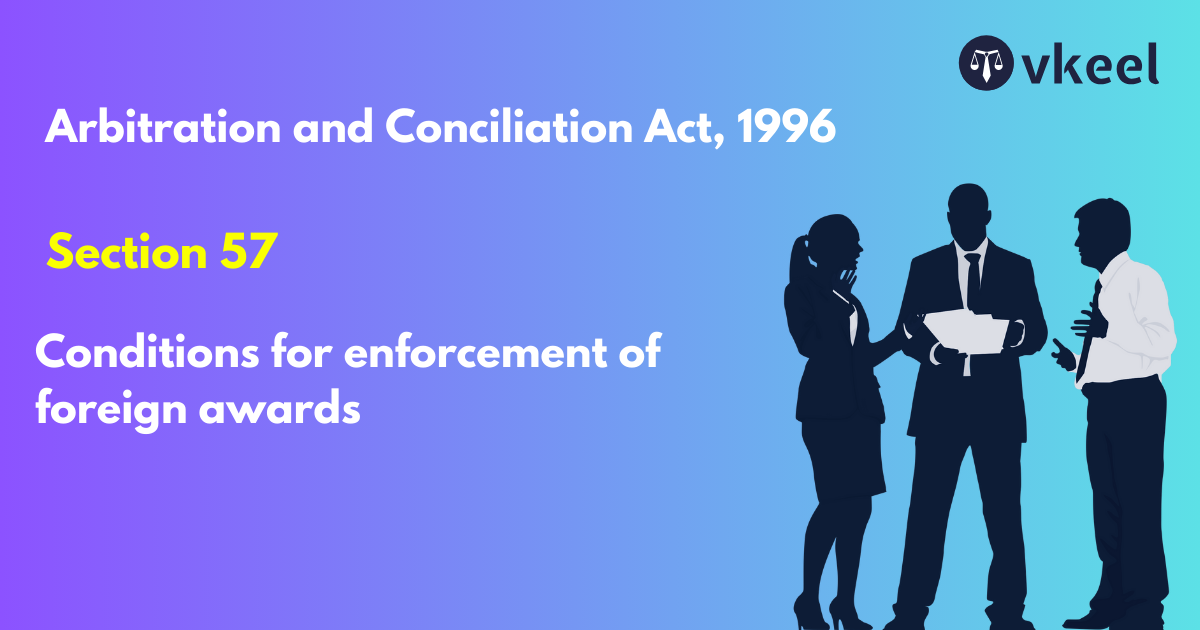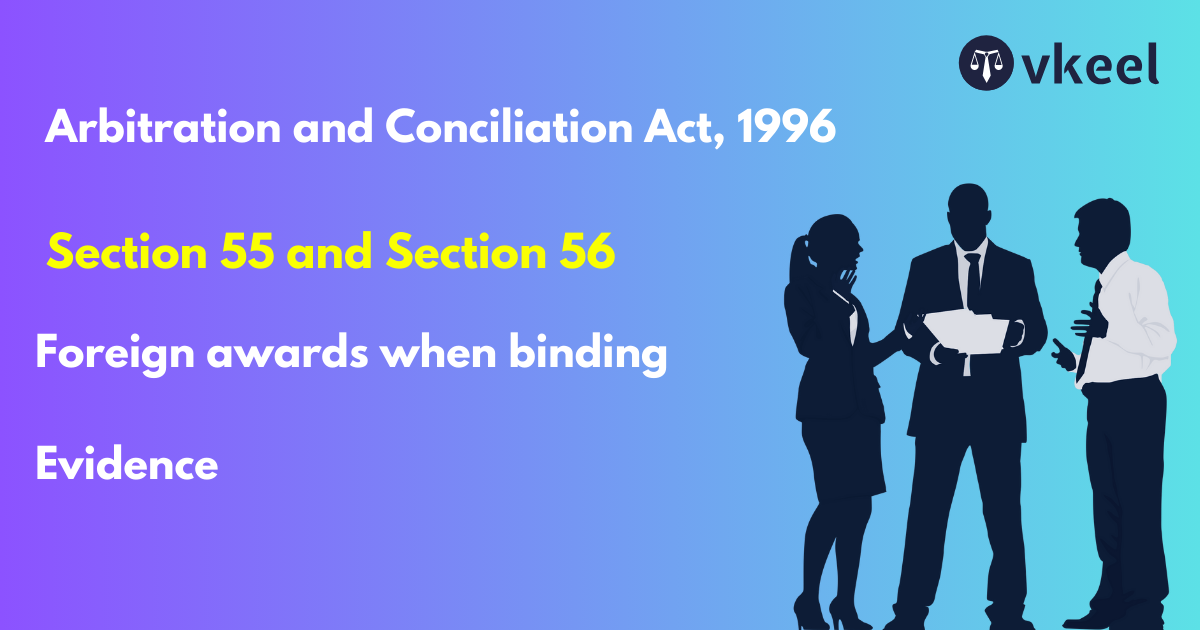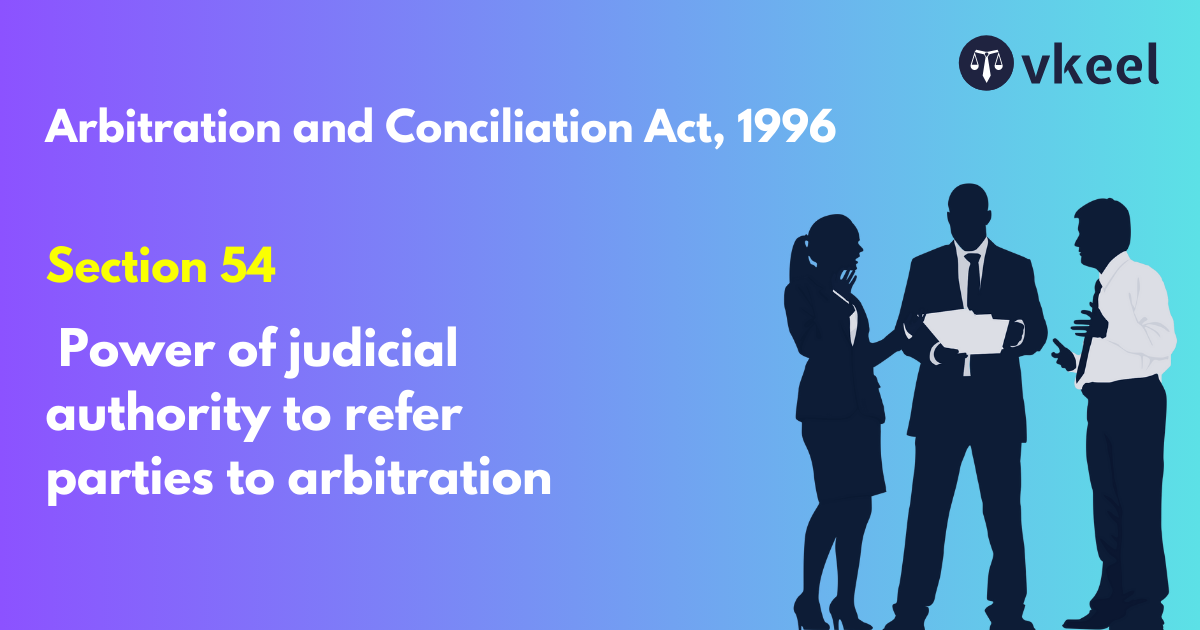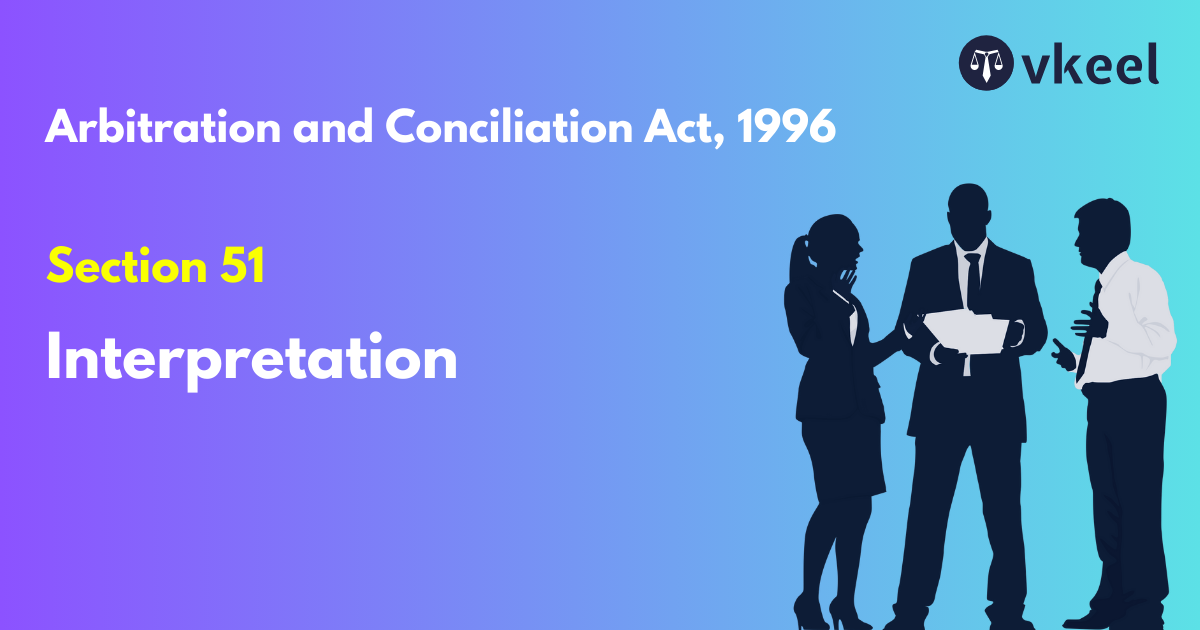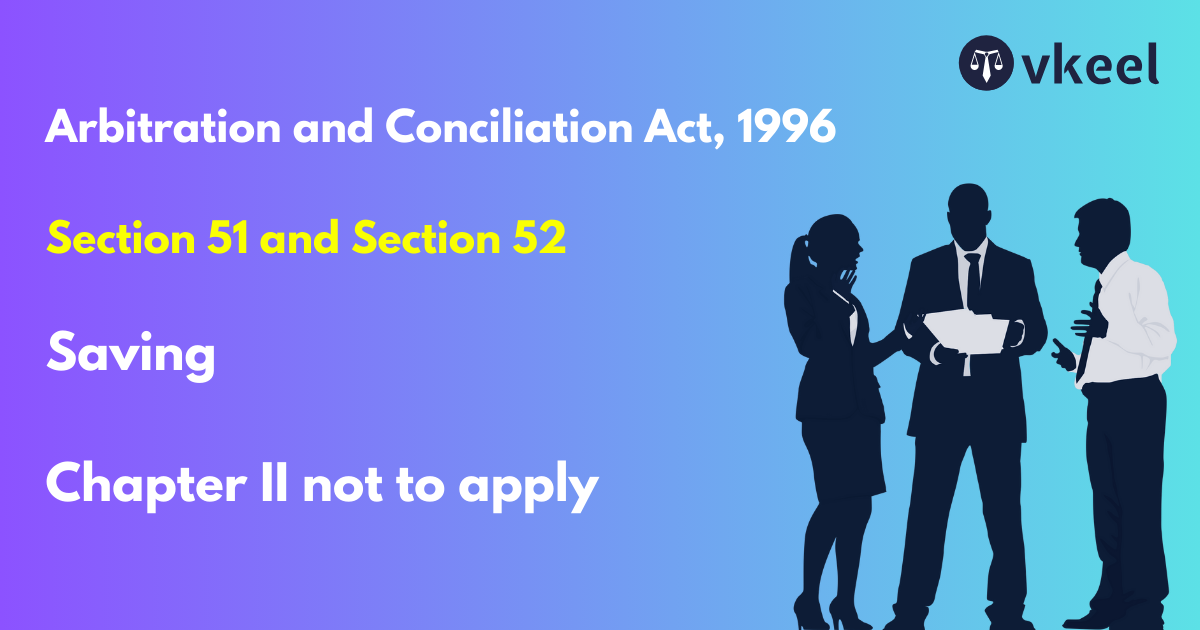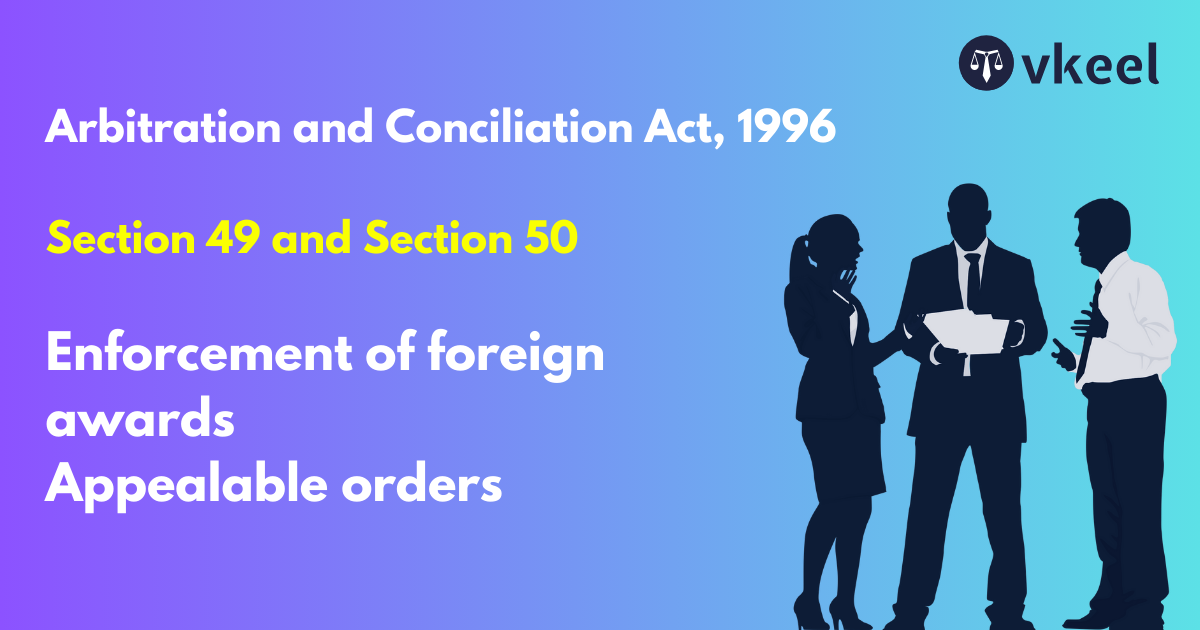Section 9: Arbitration and Conciliation Act, 1996
By Nivedita Dhiman
Table of Contents
Introduction
The Section 9 of Arbitration and Conciliation Act, 1996 clearly specifies that the interim reliefs can be sought even after the passing of the award but by the virtue of law before it becomes enforceable.
An application filed under Section 9 is not a suit, rather being a suit, they result in intimation of civil proceedings or at any time after making of arbitral award but before it is enforced in accordance with the Section 36 of Arbitration and Conciliation Act, 1996.
Section 9 of Arbitration and Conciliation Act, 1996
Power to party to appoint new arbitrator or in certain cases, a sole arbitrator. -Where an arbitration agreement provides that a reference shall be to two arbitrators, one to be appointed by each party, then, unless a different intention is expressed in the agreement, –
- if either of the appointed arbitrators neglects or refuses to act, or is incapable of acting, or dies, the party who appointed him may appoint a new arbitrator in his place;
- if one party fails to appoint an arbitrator, either originally or by way of substitution as aforesaid, for fifteen clear days after the scene by the other party of a notice in writing to make the appointment, such other party having appointed his arbitrator before giving the notice, the party who has appointed an arbitrator may appoint that arbitrator to act as sole arbitrator in the reference, and his award shall be binding on both parties as if he had been appointed by consent:
Provided that the Court may set aside any appointment as sole arbitrator made under clause and either, on sufficient cause being shown, allow further time to the defaulting party to appoint an arbitrator or pass such other order as it thinks fit.
Explanation .-The fact that an arbitrator or umpire, after a request by either party to enter on and proceed with the reference, does not within one month comply with the request may constitute a neglect or refusal to act within the meaning of section 8 and this section.
Landmark Judgements
Anantji Gas Service Vs Indian Oil Corporation,2014
Power of the court under this section is akin to O XXXIX Rr 1 and 2 of CPC and the court has to satisfy itself that the petitioner satisfies three cardinal principles of prima facie case, balance of convenience, irreparable loss in case no protection is extended by way of interim measure.
Dharam Prakash Vs Union of India, 2007
Section 9 does not encompass applications for stay of arbitral proceedings or to challenge the existence or validity of the arbitration agreements or the jurisdiction of the arbitral tribunals. All such challenges would have to be made before the arbitral tribunal. 1066 There is no provision in the Act which would enable the court to remove an arbitrator during the course of arbitration proceedings.
N Srinivasa Vs Kuttukaran Machine Tools Ltd, 2009
When an arbitrator has been appointed to decide disputes arising between them then parties should be directed to maintain status quo in the matter of transferring, alienating or creating any third-party interest in the same till the award is passed by the arbitrator. Where the parties had entered into an agreement for sale of immovable property and an advance was also made with the stipulation that sale deed was to be executed within sixty days failing which matter shall be referred to arbitration, it was held that the order of the trial court, in granting interim injunction and restraining the respondent from alienating or transferring the property pending award by the arbitrator was justified.
Techmo Car SPA Vs Madras Aluminium Co. Ltd, 2004
This section can be invoked for an interim measure of protection, inter alia for securing the amount in dispute in arbitration. To put it differently, a party could seek interim measure of protection only if there is an amount in dispute in the arbitration.
Conclusion
To conclude to the aforesaid, Lord Diplock stated, A right to obtain an interlocutory injunction is not a cause of action. It is dependent upon there being pre existing cause of action against the defendant arising out of invasion, actual or threatened by him, of a legal or equitable right of plaintiff for the enforcement of which the defendant is amenable to the jurisdiction of the court.
Disclaimer:
The information provided in the article is for general informational purposes only, and is not intended to constitute legal advice or to be relied upon as a substitute for legal advice. Furthermore, any information contained in the article is not guaranteed to be current, complete or accurate. If you require legal advice or representation, you should contact an attorney or law firm directly. We are not responsible for any damages resulting from any reliance on the content of this website.

